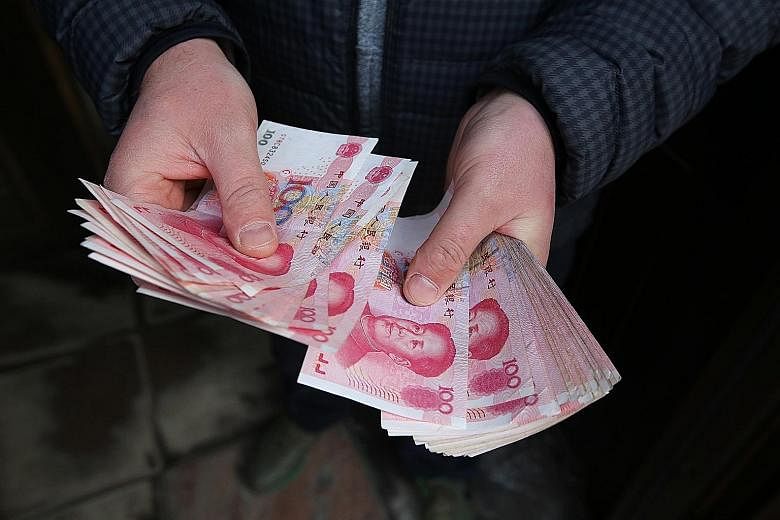BEIJING • Germany's central bank has said it will include China's yuan in its reserves, giving another boost to Beijing's drive to internationalise the currency and helping send the unit to two-year highs.
The Bundesbank said its board had decided in July to invest in the yuan, to take account of its growing importance globally, though it did not say when it would begin to include it or how much it would purchase.
"The decision... is part of a long-term diversification strategy and reflects the growing role of the Chinese currency in the world financial system," Bundesbank board member Joachim Wuermeling told Agence France-Presse on Monday. This comes after the European Central Bank in June converted €500 million (S$809 million) worth of its dollar reserves into yuan.
China was Germany's top trade partner in 2016, ranking first in the European country's imports and fourth as an export destination.
The yuan has gained increasing global clout in recent years and, in September 2016, joined the US dollar, pound, yen and euro in the International Monetary Fund's elite "special drawing rights" reserve currency basket.
It strengthened to 6.4138 against the US dollar on Monday, its highest level since December 2015, according to China's Foreign Exchange Trade System, but weakened slightly to 6.4319 yesterday.
China's central bank allows the tightly controlled yuan to rise or fall by only 2 per cent on either side of a daily reference rate to prevent volatility, but takes into account market pressures when making its decision.
But the latest rise could lead officials to intervene, analysts say, to prevent the currency from becoming too expensive.
Mr Ding Shuang, chief economist for Greater China and North Asia at Standard Chartered in Hong Kong, said: "Policy reactions may include outright interventions right before close, or a relaxation of outflow control measures to release the yuan appreciation pressure. The government will likely gradually expand the range each year, paving the way for a lightly managed float in two to three years."
The yuan's weakness against the dollar has been a sensitive issue with the US, with President Donald Trump in the past hitting out at what he calls unfair trade practices by China aimed at giving its exporters an advantage over US firms.
AGENCE FRANCE-PRESSE

